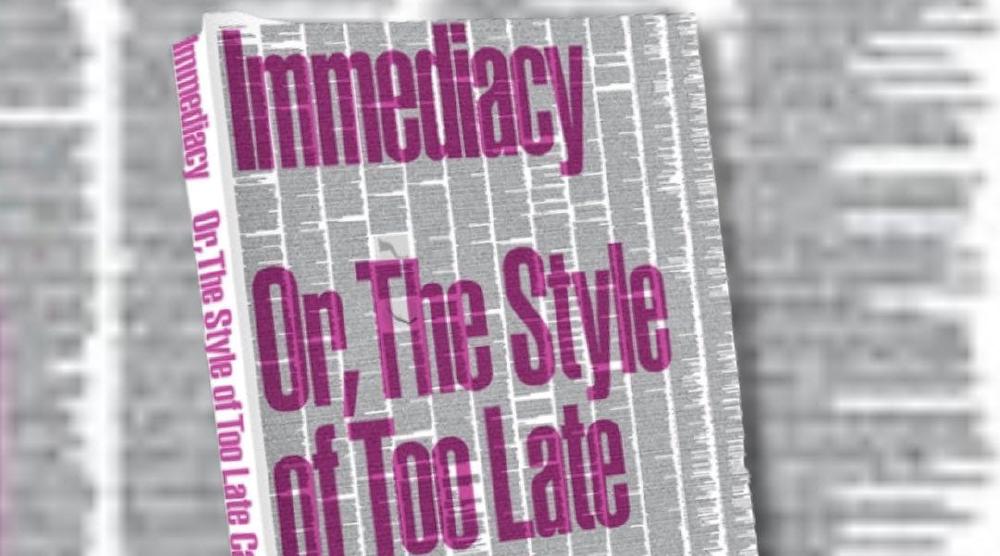Link Roundup: October 8, 2024

October 8, 2024
Hey it’s a roundup! I haven’t done one in a few weeks because, well, I’ve been writing. If you haven't already, check out some of my recent posts.
This week, I have some short book reviews and two typical article write-ups. Writing book reviews is new for me, I usually just enter notes into my extraordinarily complex note-taking system that, nonetheless, somehow works for me. I won’t always post them here, so feel free to check out my Goodreads where I will (hope to) be continuing to post reviews.
As always, I generate summaries for the articles using AI and edit those summaries for accuracy and usefulness. Then, I offer some thoughts of my own.
Anna Kornbluh, Immedacy: Or, The Style of Too Late Capitalism
Short Review
Kornbluh's diagnosis seems correct. Across domains--writing, video, theory--there really does seem to be a resistance to anything that doesn't come neatly packaged, ready to consume. And much of supposedly “radical” thought is radical in style only, failing to take any sort of stance or “draw lines.” To exist in academic spaces is to see immediacy style, daily. I am persuaded and fully on board.
That said, I wished, at times, that Kornbluh would draw more lines of her own. To be clear, I'm not taking up the lazy perspective that a text fails to enact its own argument. Largely, Kornbluh’s does. But her insistence on the connection of the literary, and mediation broadly, to political practice seems wedded to an assumption of the importance of the humanities in a world where that importance has been radically diminished. In a sense, this isn't even a critique of Kornbluh, because I agree with her values. Mediation is necessary, and she has convinced me of the ways that it is under attack. I just wish that there was a bit less attention to how immediacy affects things like Safdie films, and more on how it affects labor conditions within the university, for example. Both topics are there, the balance just seems off. But maybe (honestly) this desire reflects my own investments in the "immediacy" of the useful. In any case, the book is well-argued, persuasive, and worth reading.
Ursula K. Le Guin, The Lathe of Heaven
Short Review (Spoilers)
Equal parts fantastical and tragic, The Lathe of Heaven is my favorite Le Guin's novel I've read so far. Among its many themes, one stood out as particularly significant and ahead of its time. Toward the end of the novel, Orr is unable to keep track of the various realities affected by his dreams. “He was living almost as a young child, among actualities only. He was surprised by nothing, and by everything.” How did Le Guin blow so effortlessly past postmodernism, perfectly capturing the post-postmodern regression, the complete capitulation to the flow, that we see today?
Robin K. Hill, “Do All Problems Have Technical Fixes?”
Generated Summary (ChatGPT)
The article critiques “tech solutionism,” the belief that all problems can be fixed with technology. It highlights how this attitude, common in Silicon Valley, often ignores non-technical aspects of issues and reduces them to problems that require technical fixes. The author questions the reasoning behind this, suggesting that it's more about a pro-technology attitude than thoughtful logic. The article also raises concerns about the normative value placed on technology and the assumption that it's inherently good, without deeper examination of its broader societal impact.
My Thoughts
Speaking of The Lathe of Heaven… Hill here does an excellent job capturing and considering a strange phenomenon: technologists’ strange inability to grok the idea that technology for technology’s sake might be flawed reasoning. She summarizes this perspective well:
The unspoken foundational claim is not that computing technology confers certain benefits, a pragmatic claim, and a matter of fact, but that it carries normative value, that it’s good; in particular, our tech is good, and therefore should be out there in the world.
I tend to take the stance of the “ungenerous critic” she describes. (Just how generous does criticism need to be, everybody?) I’ll let you read the article beyond that; it’s worth it.
Julie Bort, “Y Combinator is being criticized after it backed an AI startup that admits it basically cloned another AI startup**”**
Generated Summary (ChatGPT)
Y Combinator has come under fire for backing PearAI, an AI startup accused of cloning another AI project, Continue. PearAI's founder, Duke Pan, initially implemented a proprietary license, which drew criticism from the open-source community as it deviated from Continue's original Apache license. After backlash, PearAI reverted to the open-source license, but the controversy sparked widespread discussions about Y Combinator's diligence and selection criteria. Critics have also raised concerns about the lack of innovation in PearAI and Y Combinator’s tendency to fund similar AI ventures.
My Thoughts
The dumbest and most predictable type of shit imaginable. Whatever the future holds for AI, one thing is clear: the ways that people are trying to capitalize on it, whether in the tech sector or higher ed, is really, really stupid.